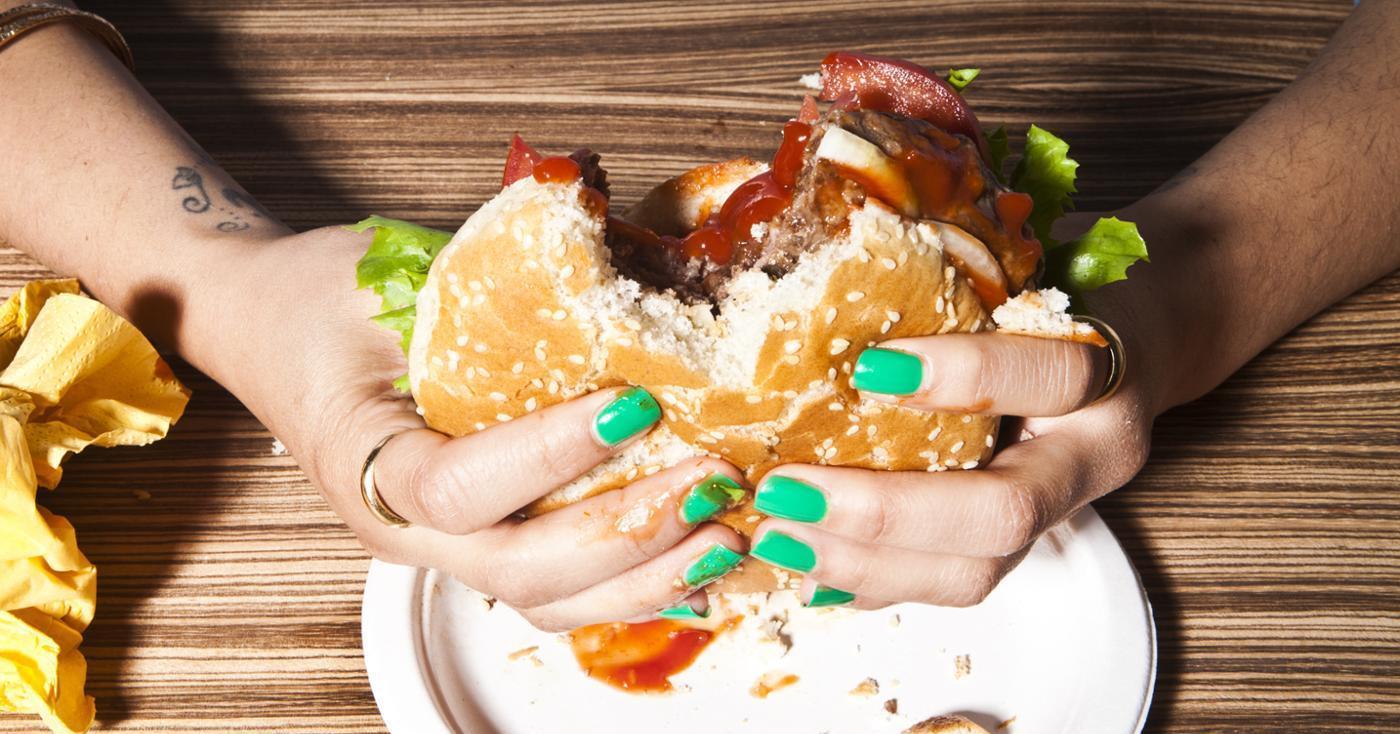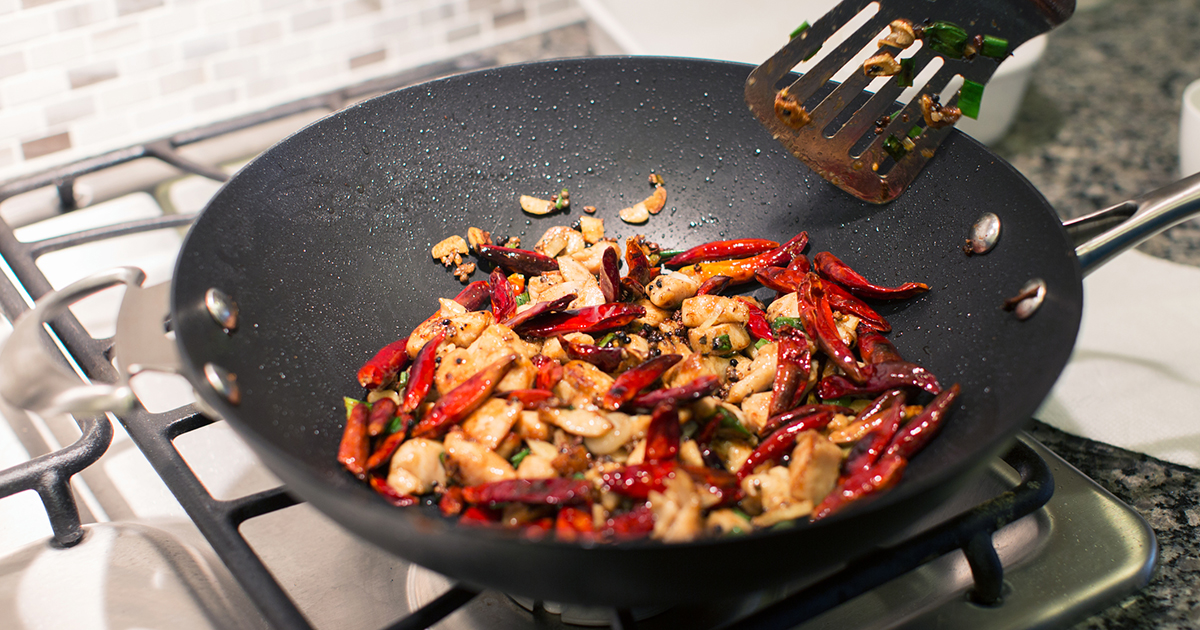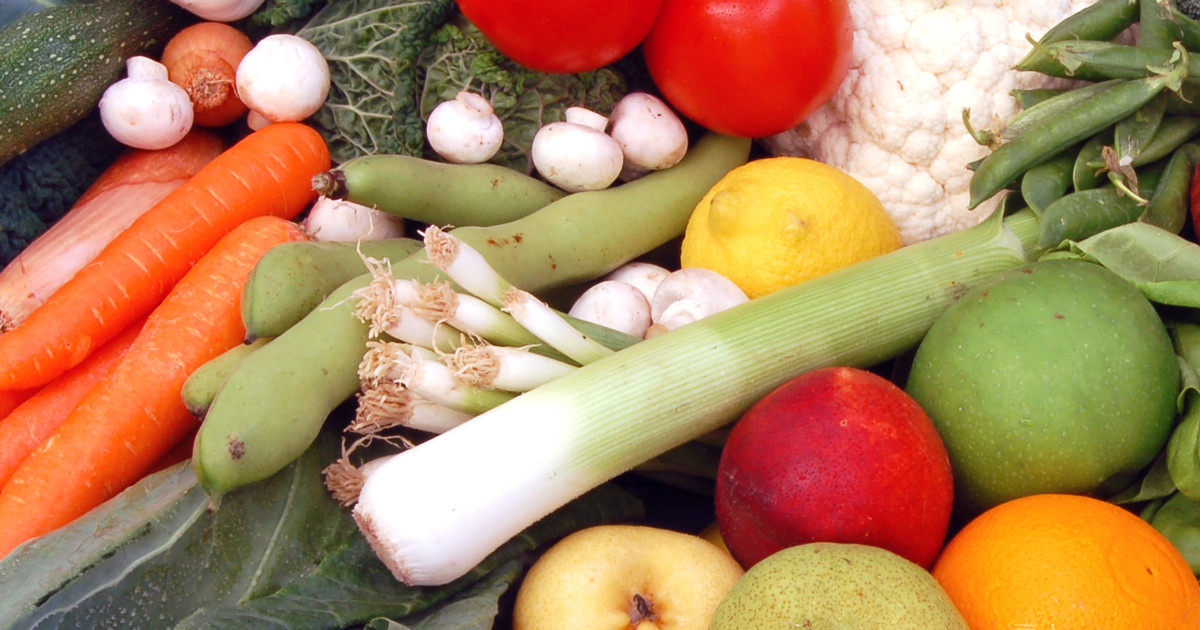Dietary Tips For Losing Weight In A Healthy Way
There is a far better way to lose weight than engaging in fad diets and losing weight only to have the pounds come back almost right away. Committing to a healthy way of eating will melt off the pounds for good. One reason fad diets don't work over the long term is they make individuals feel deprived. Many individuals can stick to a diet for a little while, but once they hit their goal weights, they go right back to the way they were eating before. Because eating in a healthy way is enjoyable, individuals can commit to it over the long term. You just need to make a few quite simple changes to your eating habits!
Read on to find out more about these easy changes.
Practice Portion Control

Food portions are getting larger. We see it in fast-food restaurants with 'super-sized' portions and in sit-down restaurants where the amount of food served on one plate sometimes has more calories than an individual needs for the entire day. People are eating more at home too. Always put food in a bowl or on a plate before eating to help control portion size at home. Never eat out directly out of a bag, carton, or jar, as this is a sure way to lose track of how much you are eating! Don't leave the serving platter on the table because doing so makes it too easy and too tempting to take more food. Eat what is on the plate and avoid having seconds. Some individuals even choose to use smaller plates to help with this even further. Practice portion control in a restaurant by eating only part of what's on the plate and taking leftovers home. Sometimes you can get two or three more meals out of the leftovers! If you get dessert, split it with at least one other person.
Reveal the next diet tip for healthily losing weight now.
Reduce Consumption Of Processed Foods

Choose foods as close to their natural forms as possible. Food processed in a factory contains additives that can interfere with the body's natural weight maintenance functions. Processed foods also often contain artificial preservatives so they last longer on the grocery shelf. They may have artificial colors and flavors to make them more appealing. These artificial ingredients are not good for health, and they can make it harder to lose weight. Start reducing your consumption of processed foods by buying foods on the outside aisles of the grocery store, such as fresh fruits, fresh vegetables, dairy, and fresh fish and meat. Reduce the amount of food you buy in a package or with ingredients on the label you don't recognize. If you eat out a fair amount, try cooking at home more often. Learn how to cook simple, delicious meals that don't take much time to prepare and use real foods.
Reveal the next piece of advice now.
Drink Water Before Meals

Drinking water, particularly shortly before a meal, reduces appetite. Because the water makes you feel full, you won't eat as much. When you make it a daily habit to drink water before meals, you will eat fewer calories every day. This is an easy trick that will help with long-term weight loss. Drink one or two glasses of plain water right before a meal or up to a half-hour before. Individuals who do this eat an average of seventy-five fewer calories during meals. If you drink water before every meal or even just before one meal a day, those calories will add up over time. Drinking more water throughout the day is also a very healthy habit. Keeping hydrated helps the body's systems work more effectively.
Keep reading for more detailed information on precisely how to lose weight in a healthy manner through diet.
Start Each Day With A Healthy Breakfast

Skipping breakfast, though it might seem like a simple way to cut calories, actually sets individuals up for overeating later in the day. They start by becoming ravenous before lunchtime. They may be tempted to snack on whatever is at hand, even if it is fattening and unhealthy. Instead, it is crucial to start each day with a healthy breakfast that will keep you full for hours. A typical carb-filled breakfast of sugary cereal and white-bread toast is not healthy. Processed carbs burn up quickly and will not keep you satisfied for long. So what should you eat? Experts recommend avoiding a lot of processed cereal or pastries and choosing fruits, vegetables, whole grains, and protein instead. Whole grains contain more fiber than processed cereals and keep individuals feeling full longer. Oatmeal and whole-wheat toast are good choices. Healthy protein options include yogurt, peanut butter, eggs, and beans. If you are not hungry when you first wake up, it's okay to have breakfast a little later. Just don't skip it altogether.
Continue for details on another way to lose weight in a healthy way now.
Build Treats Into The Diet

Individuals who are too strict with their diet and deprive themselves of all their favorite treats won't be able to stick with the diet for long. They will also be more likely to binge on the 'forbidden' foods when they do fall off the wagon. Making healthy eating a lasting part of your life means you have to enjoy it. Becoming a healthy eater is not like going on a crash diet where you hang on with sheer willpower. It's about creating new habits you can stick with easily because you feel satisfied with what you are eating. Build treats into your diet to create a healthy eating plan that won't make you feel deprived. One way to build these treats in is to find healthier ways to make old favorites. Another way is to eat more indulgent foods like cakes and pies in moderation. For example, have a small or medium-sized portion rather than a huge one or only eat dessert once or twice each week instead of every night.
Learn about more dietary tips for losing weight effectively now.
Try Intermittent Fasting

Intermittent fasting is an eating style in which patients alternate between periods of eating and fasting. Rather than restricting calories or dictating the type of food a patient must eat, intermittent fasting only dictates when an individual can eat. Beginners often choose to have an eight-hour eating window followed by sixteen hours of fasting. As a patient adjusts to this method, they might wish to restrict the eating period to five hours or less per day, and some choose to simply eat one meal per day. Studies have shown intermittent fasting may enhance insulin sensitivity and increase levels of human growth hormone. Additional research indicates this eating pattern could increase an individual's metabolism by as much as fourteen percent. Intermittent fasting is associated with less muscle loss than traditional diets that rely on calorie restriction. Patients with diabetes, low blood pressure, or a history of eating disorders should check with a doctor before they try intermittent fasting.
Read more about the various dietary tips for losing weight now.
Cut Back On Sugar

Cutting back on sugar could help patients eat fewer calories, and studies suggest it could reduce insulin and leptin resistance, both of which are linked to weight gain. Reducing dietary sugar intake could lower inflammation as well. Insulin resistance is associated with increases in abdominal fat levels, and leptin resistance increases appetite. In the United States, major health organizations currently recommend that women aim for no more than twenty-five grams of added sugar intake each day. Ideally, men should consume no more than 37.5 grams of added sugar per day. Added sugars are often hidden in store-bought crackers, cookies, baked goods, sauces, and bread. Nutritionists suggest patients carefully read the nutrition labels on these items. Added sugars must be declared on the nutrition label, and patients may need to check multiple brands to find the item that is lowest in added sugar. To cut back on sugar, it can help to track daily sugar intake with a calorie-counting app.
Reveal additional dietary tips for losing weight now.
Eat Spicy Foods

Individuals who are trying to lose weight may want to eat spicy foods. A 2011 study conducted at Purdue University found that adding at least half a teaspoon of cayenne pepper to meals helped patients burn more calories when compared to a control group who did not consume cayenne. Consuming cayenne also reduced appetite, and participants reported fewer cravings for foods high in salt, fat, or sugar. An additional study found that regular consumption of cayenne could increase daily calorie expenditure by up to 119 calories. In addition to cayenne, patients might want to consume other spicy foods such as chili peppers. These can easily be added to soups, sauces, and salads. Individuals who cannot tolerate spicy foods could supplement their diet with a capsaicin tablet instead.
Get more details on dietary tips for losing weight now.
Increase Intake Of Fruits And Vegetables

Fruits and vegetables have a lower calorie density than other foods such as grains, and they are often high in fiber. Increasing fruit and vegetable intake could help patients feel full for longer, and this could promote weight loss by reducing total calorie intake. A study published in 2012 investigated the impact of increased fruit and vegetable intake in a group of obese patients. Half of the patients were assigned to consume five hundred calories per day, and the others were instructed to eat eight vegetables and two to three fruits each day. Participants were provided with breakfast and lunch five days a week for the first three months of the study, and they were given two days of meals each week during the fourth month.
After twelve months, the patients in the calorie reduction group lost more weight than those in the fruit and vegetable group. However, the researchers found the participants in the fruit and vegetable group had increases in serum carotenoids (markers associated with fruit and vegetable intake). Increased serum carotenoids were correlated with improvements in weight and increases in fat loss, and the authors concluded an increased intake of fruits and vegetables is an appropriate strategy for weight loss. They recommend that it be used in combination with a calorie restriction program. Additional research from a twenty-four-year study suggests fruits and non-starchy vegetables are the healthiest options for promoting weight loss. Berries and cruciferous vegetables like broccoli and cauliflower can be especially beneficial for weight management.
Read more about losing weight through dietary choices now.
Avoid Fad Diets

For long-term, sustainable weight loss, doctors advise that patients avoid fad diets. Fad diets typically involve the elimination of entire food groups and only allow followers to choose from a very narrow range of foods. Some of the most popular fad diets include the cabbage soup diet, the grapefruit diet, and the master cleanse. These eating plans are designed to be followed for no more than two to three weeks, and they promise significant weight loss over this period. While they may promote short-term weight loss, most individuals gain back all of the weight they lost (and possibly more) once they go back to their normal eating patterns. Some patients have developed nutritional deficiencies due to fad diets, and they could harm their metabolism as well. Instead of following a fad diet, experts recommend adopting long-term lifestyle changes such as increasing fruits and vegetables, reducing fast food, and doing regular exercise. These lifestyle changes should be combined with a calorie reduction plan. Doctors and nutritionists can provide individualized advice on an appropriate calorie level for each patient's health needs.